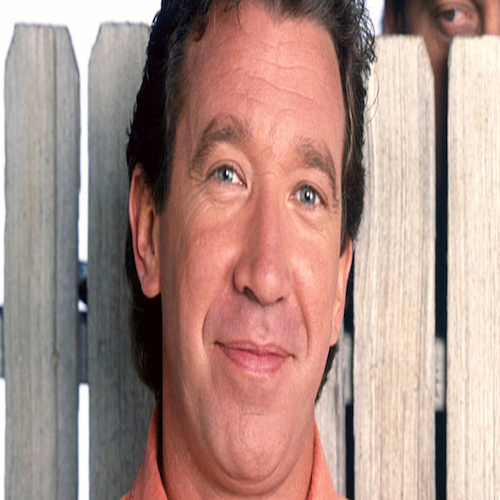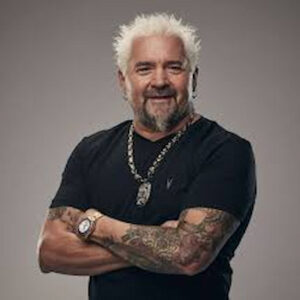Tim Allen, Bio, Early Years and Family Tragedy

Tim Allen, Biography
Who Is Tim Allen?
Tim Allen’s story is one of unlikely redemption—a tale that begins in darkness and climbs, with grit and humor, toward the light of laughter. Once marked by the shadows of his youth and a prison sentence for drug dealing, Allen transformed adversity into fuel for reinvention. With resilience as his compass, he found his voice on the stand-up stage, turning his pain.
Early Years and Family Tragedy
Tim Allen Dick was born on June 13, 1953, in Denver, Colorado, as the third of six children born to Gerald and Martha Dick. The home was lively and loud, filled with the clamor of siblings and the hum of a close-knit family. Yet even as a boy, Allen learned to wield humor as both shield and sword. His last name, often the target of childhood teasing, became the spark that ignited his wit; laughter, he discovered early, could soften any blow.
Among the many threads of his early life, none shone brighter than his bond with his father, Gerald. His father’s presence filled the young boy’s world with warmth and wonder. A man tall and commanding, yet endlessly playful, whose love of cars and engines became a shared passion between father and son. Allen would later recall with deep affection that his father was strong, funny, and utterly engaging. Someone whose scent, sensibility, and laughter made even ordinary days feel special. He remembered how eagerly he would wait for his father to return home each evening, as if joy itself walked through the door when he did.
It was a connection built not only on love but also on rhythm. The rhythm of jokes, of tinkering with machines, of small moments that, unbeknownst to the boy then, would one day become sacred memories.
Loss and the Weight of Growing Up
In 1964, when Tim Allen was just eleven years old, tragedy carved an irreversible line through his childhood. His father, Gerald—the man who had filled his days with laughter and the smell of motor oil—was killed by a drunk driver while returning home from a football game. For a boy who had adored his father with unguarded devotion, the loss was devastating. The world, once vivid and secure, suddenly felt hollow.
In the aftermath, Allen’s mother gathered her six children and moved the family to Detroit, Michigan, seeking stability in the face of heartbreak. Years later, she remarried her high school sweetheart, a successful businessman whose life was steeped in discipline and Episcopalian values. Together, they raised the children with steadiness and structure—yet for Tim, something essential had gone missing. Beneath his humor, there lingered a quiet ache that would echo through much of his early life.
Tim Allen, A Restless Youth
As a teenager, Allen drifted through school, more fascinated by engines and tools than by textbooks. Shop class offered him a kind of sanctuary — a place where his hands could make sense of the world even when his heart could not. After high school, he enrolled at Central Michigan University, later transferring to Western Michigan University to earn a degree in television and radio production. It was there he met Laura Deibel, who would become both his long-time girlfriend and, eventually, his wife.
But beneath the surface of ambition and love, a different current was pulling him along. During those college years, Allen began to earn money as a narcotics dealer—a decision born of recklessness and restlessness, one that would soon define the darkest chapter of his life.
Tim Allen, Fall and Reckoning
After graduating in 1976, Allen found steady work at a sporting goods store, where his creativity earned him a position in the company’s advertising division. By 1978, he was married to Laura and seemingly building a stable life. Yet his double existence continued—husband and adman by day, drug dealer by night.
On October 2, 1978, the façade collapsed. Caught at the Kalamazoo airport with nearly a pound and a half of cocaine, Allen was arrested alongside an accomplice. The arrest shattered everything—his career, his reputation, and his illusion of control. Out on bail, awaiting trial, he found himself standing before a mirror he could no longer avoid.
In the months before his sentencing, Allen tried something unexpected: stand-up comedy. He took the stage at Detroit’s Comedy Castle, unsure of what might happen. What emerged that night was magic—a voice unfiltered, honest, and raw. The crowd laughed, and for the first time, Allen felt a glimmer of redemption.
READ ALSO: Why Do Most Men Feel Nobody Cares About Their Mental Well-Being?
When he finally stood before the court in November 1979, he was sentenced to eight years in federal prison—reduced after he agreed to testify against his partner. He would serve just over two years at Sandstone Federal Correctional Institution.
Behind bars, something began to shift. Humor became his currency and his salvation. Even the guards—hard men who’d seen everything—found themselves laughing at the wit and absurdity that Allen spun from his own downfall. Prison, in a strange and humbling way, became his crucible.
Tim Allen, Rising From the Ruins
When Allen was released on parole in 1981, he returned to Detroit a changed man. By day, he worked once again in advertising; by night, he returned to the stage that had once saved him. At the Comedy Castle, he began shaping the comedic identity that would make him famous—the gruff, hyper-masculine everyman who communicated through his now-iconic, staccato grunts.

His confidence grew. Soon, his routines captured the attention of casting directors, leading to commercial appearances. These included a memorable series for Mr. Goodwrench that brought his humor into living rooms across America.
Amid the growing success, life gave him a gentler role to play: that of a father. In 1989, his daughter, Katherine, was born, bringing with her a sense of grounding and purpose that Allen had long sought. The boy who once hid his pain behind jokes had begun, at last, to turn laughter into light.
A Voice, A Vision, and the Birth of a Star
By 1990, Tim Allen had found his rhythm. A voice both familiar and new, echoing from workshop floors and living rooms alike. His now-famous “Men Are Pigs” routine, a sharp yet endearing observation of men and their eternal love affair with tools and hardware, had been transformed into a Showtime television special. What began as a modest stand-up act became a cultural mirror—humorous, human, and deeply relatable.
The special caught the attention of Hollywood powerhouses Jeffrey Katzenberg and Michael Eisner, who saw in Allen something both raw and magnetic. They offered him leading roles in small-screen adaptations of Turner & Hooch and Dead Poets Society. Yet Allen, guided by a stubborn sense of authenticity, declined both offers. He wanted to tell his own story, in his own words—not to play someone else’s dream, but to build his own.
‘Home Improvement’: The Everyman Finds His Home
His persistence paid off. Disney eventually agreed to develop a sitcom inspired by his stand-up material—the blueprint for Home Improvement. The show would center around Tim Taylor, a family man and the bumbling host of a DIY television show called Tool Time.
Just before its 1991 debut, Allen made headlines when he revealed his past. The years of mistakes, the prison sentence, and the long road back. Some predicted his honesty might end his career before it began, but the opposite happened. Audiences didn’t turn away; they leaned closer. His candor made him real; his humor was redemptive.
Within months, Home Improvement became a sensation. The show landed in the Nielsen Top 10 during its first season, and Allen’s brand of self-deprecating, masculine humor struck a cultural chord. In 1992, he earned his first People’s Choice Award for Favorite Male Television Performer. A title he would hold for eight consecutive years. By 1993, the man who once cracked jokes to prison guards was now an Emmy-nominated star and one of the most recognizable faces in America.
‘The Santa Clause’ and ‘Toy Story’: Hollywood’s Golden Year
Then came 1994—the year that sealed his legacy. Within a single week, Allen achieved a rare trifecta: the number one television show (Home Improvement), the number one film (The Santa Clause), and the number one bestselling book (Don’t Stand Too Close to a Naked Man).



